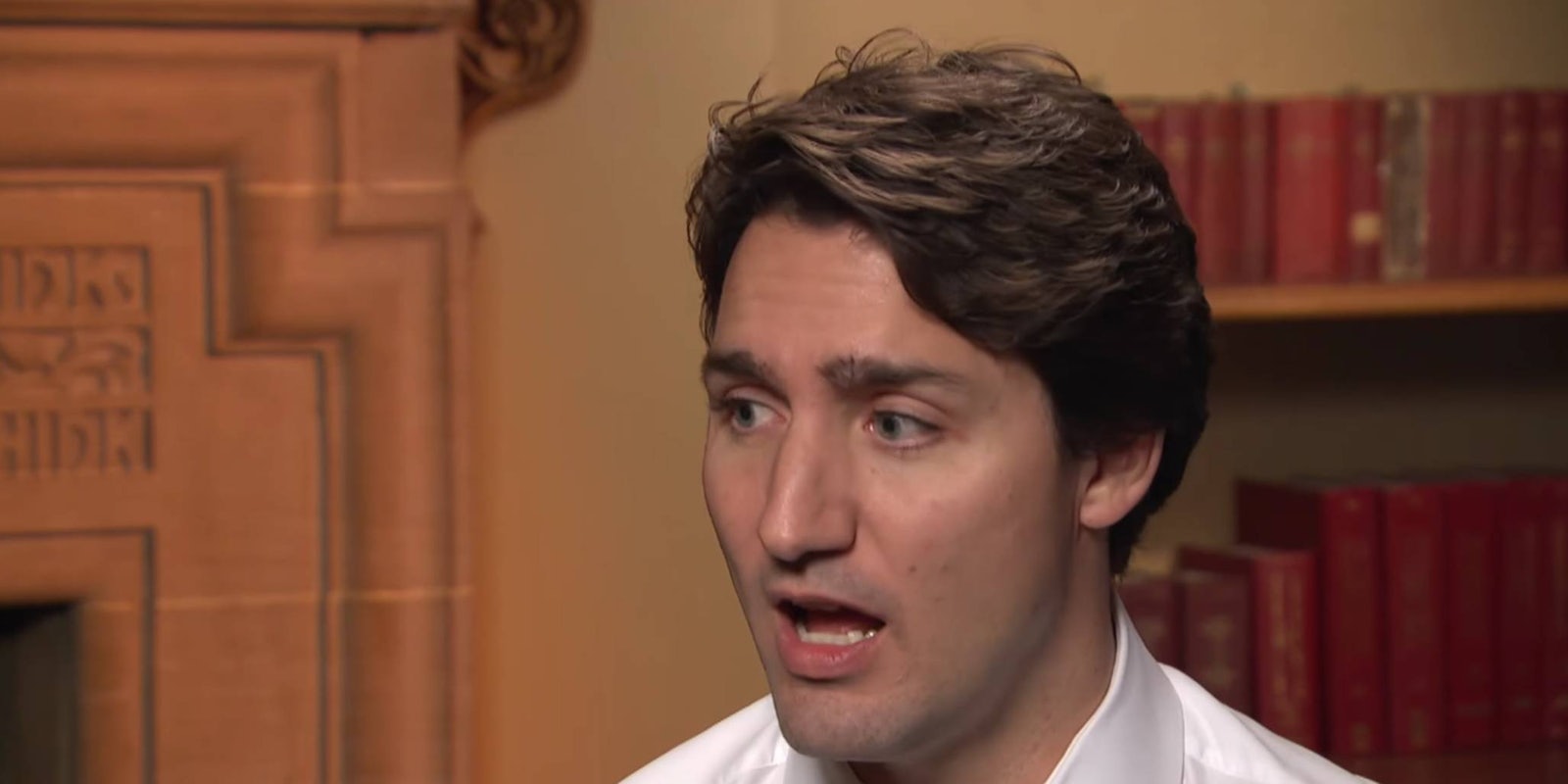How’d your weekend go? Contrary to what you might assume, there’s a very good chance it went better than Justin Trudeau’s did. The popular Canadian prime minister is widely regarded as having stepped in it this week, following the death of Cuban revolutionary and decades-long dictator Fidel Castro.
In response, Twitter has fought back with mocking hashtag.
When a world figure as towering as Castro dies, it falls to other leaders across the globe to figure out how to respond. And this is a rather touchy case, given the wildly varying opinions and views of Castro’s legacy across the political spectrum—lauded by some for his anti-imperialism, anti-colonialism, and socialist systems of health care and education, while loathed and reviled for his severe human rights abuses and violent repression of his people by others.
Managing that balance can be tricky, especially if you’re a head of state, but it’s not impossible.
That was not the route Trudeau decided to go. To the contrary, while many Cubans and Cuban expatriates were celebrating the news, he released what’s been regarded by many as an ahistorical white-washing of Castro, a statement which expressed “deep sorrow” at the news of Castro’s passing and offered the Castro family condolences “on behalf of all Canadians.” Here’s the full statement.
It’s fair to say that a lot of people on social media found this statement a little—or rather, a lot—softer and too fond for their tastes, which gave rise to the hashtag #TrudeauEulogies. It imagines other casual, familiar obituaries by Trudeau about other blood-stained dictators or leaders throughout history (or fiction, too).
https://twitter.com/Acts17/status/802784235912241152
Jim Jones will always be remembered for his superior mixology skills #trudeaueulogies #trudeaueulogy
— Do It Live! (@QuadRipple) November 27, 2016
Henry VIII: An idealist and a dreamer, no disappointment could deter him from his determined quest for love. #Trudeaueulogies
— Walter Russell Mead (@wrmead) November 26, 2016
I extend my heartfelt sympathies to the family of The Joker, a revolutionary who always had a smile on his face. #trudeaueulogies
— Andrew Klavan (@andrewklavan) November 26, 2016
https://twitter.com/JackPrice89/status/802679343520608256
Senator Bob Packwood spurred the nation to fight against the sexual harassment of women. #trudeaueulogies
— Eric Christ (@EricDChrist) November 27, 2016
A quiet loner with a quick wit, Osama Bin Laden inspired tremendous advances in air transportation security methodologies. #TrudeauEulogies
— Chris D. Lewis, C.O.M. (@ChrisLewisLLS) November 26, 2016
Saddened about the passing of Sauron who, while heavy-handed, did advocate for open borders and usher in industrial era. #trudeaueulogies
— Elana Fric Shamji (@ElanaFricShamji) November 26, 2016
John Wilkes Booth was a brilliant revolutionary & actor who leapt to fame after his one shot performance. #trudeaueulogies
— Ben Aksar (My Pronouns? I Trust You) (@BenAksar) November 27, 2016
“Mr. Stalin’s greatest achievement was his eradication of obesity in the Ukraine through innovative agricultural reforms.” #TrudeauEulogies
— Melissa Lantsman (@MelissaLantsman) November 26, 2016
Suffice to say, Trudeau’s taken quite a vicious online roasting since releasing the statement. He did clarify it Sunday, however, when CBC reporter Catherine Cullen asked him whether he considered Castro to have been a dictator.
I asked Trudeau if he thinks Castro was a dictator. He says yes. #hw
— Catherine Cullen (@cath_cullen) November 27, 2016
This may be a case of damage done, however. All the derision and criticism Trudeau’s been absorbing over the past 24 hours, he may simply have to take it. It’s a lesson, ultimately, in just how tricky being a national leader can be—however reasonable or measured something might sound when it’s read off a page, it’s not always going to be received that way. Much less when it downplays some of the most grievous deeds carried out by a dictator who ruled for nearly 50 years.


